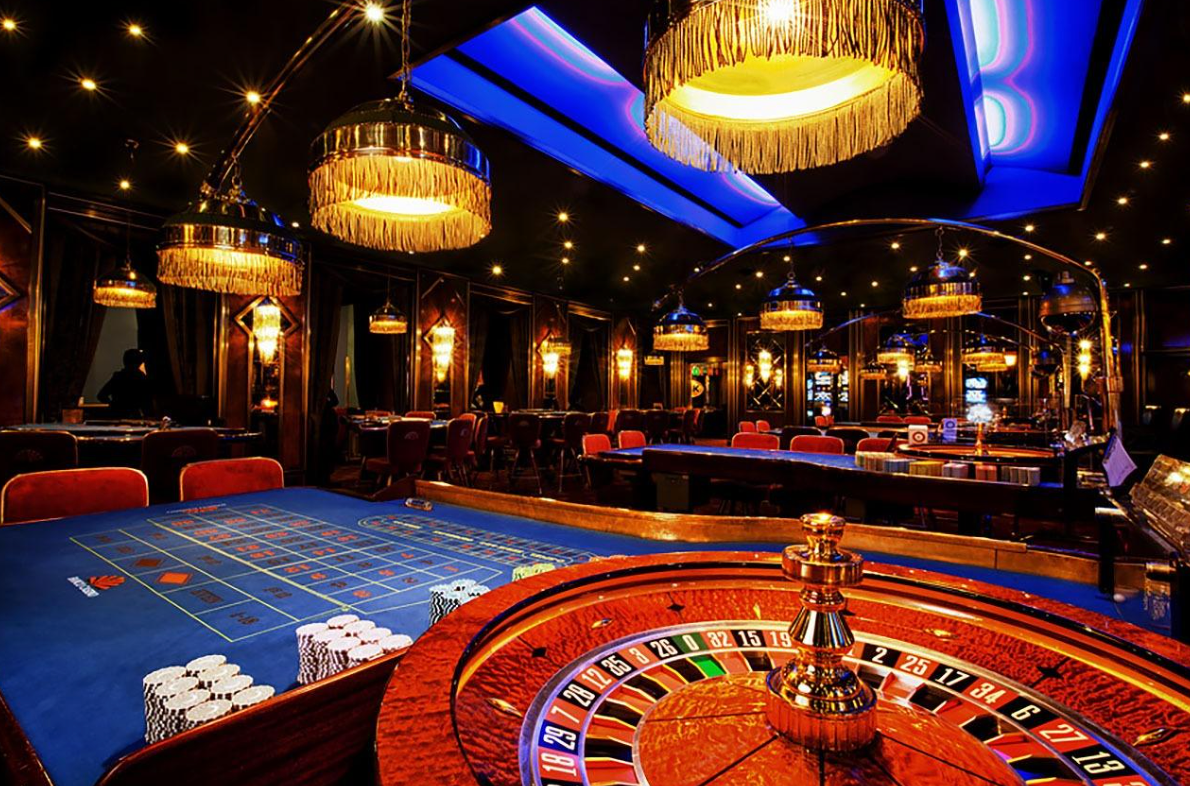Sweepstakes casinos represent a unique phenomenon in the world of gambling, emerging at the intersection of technology, marketing, and legislation. Their rise was a response to the strict regulations imposed on traditional casinos in various jurisdictions. By leveraging innovative mechanics, these platforms provided users with a way to enjoy gambling entertainment without formally violating the law, which fueled their rapid surge in popularity.
However, the success of sweepstakes casinos inevitably drew the attention of regulators and lawmakers. In recent years, this sector has faced increased scrutiny, legal battles, and attempts at prohibition, particularly in the United States. In 2024, the situation reached a critical point: major operators began exiting the market en masse in anticipation of potential tighter regulations in key states like New York. These developments could fundamentally reshape the future of sweepstakes casinos — either leading to their disappearance in certain regions or driving a shift to a new business model.
In this article, we will delve into the history of sweepstakes casinos, their evolution, key milestones, the impact of legislation, and potential future prospects for the industry.
The History of Sweepstakes Casinos
Sweepstakes casinos emerged in the early 2000s as an alternative way to offer gambling entertainment in regions with strict restrictions on traditional casinos. The core idea was to use promotional mechanics and virtual currency, allowing operators to bypass gambling bans while still providing users with a comparable experience.
Early Stage (2000s)
The first sweepstakes casinos offered users the ability to purchase virtual goods, which came with bonus gaming credits used to participate in slots, poker, and other casino-style games. This format allowed companies to operate in a legal gray area, avoiding direct regulation. At this stage, such platforms remained relatively niche, primarily targeting the U.S. market.
Rise in Popularity and Expansion (2010s)
With the growth of online gambling in the 2010s, sweepstakes casinos began to gain rapid traction. Key factors driving their expansion included:
- Bypassing legal restrictions – In several U.S. states where traditional online casinos were banned, sweepstakes platforms allowed players to enjoy slot machines and other gambling games without violating the law.
- Aggressive marketing campaigns – Operators heavily leveraged social media advertising, influencer partnerships, and mobile app integrations, attracting millions of users.
- Interactivity and engagement – Many platforms introduced gamification elements, user competitions, loyalty programs, and the ability to exchange virtual currency for prizes.
- Technological innovations – The advent of HTML5 games, enhanced graphics, and mobile applications significantly improved the gaming experience, making sweepstakes casinos more appealing to a wider audience.
By the mid-2010s, platforms like Chumba Casino and Global Poker had achieved significant success, becoming industry leaders. Some companies even explored expansion beyond the U.S., particularly into Canada and Australia.
First Regulatory Threats (2020s)
As sweepstakes casinos gained wider recognition, they also began to attract regulatory scrutiny. The main concerns raised included:
- Resemblance to gambling – Despite lacking direct cash payouts, the slot mechanics and gameplay in sweepstakes casinos were virtually identical to traditional gambling platforms.
- Addiction risks – Players often perceived virtual currency as real money equivalents, leading to excessive spending and addictive behavior.
- Operational transparency – Some sweepstakes operators faced accusations of unfair gaming practices, payout delays, and aggressive marketing tactics.
Between 2022 and 2023, the first legal actions and regulatory initiatives emerged to curb sweepstakes casino operations. In California, lawmakers proposed a review of sweepstakes-based gambling regulations, while in Connecticut, High 5 Casino faced legal action over alleged violations of gambling laws.
Current State and Future Prospects
Today, sweepstakes casinos are at the center of legislative debates. In the United States, some states are pushing for a total ban, as seen in New York, while others are considering regulatory frameworks similar to those applied to social casinos.
Possible Future Scenarios
- Strict regulation or prohibition – If bills like the one in New York gain widespread support, many sweepstakes casinos may be forced to shut down or seek new markets.
- Legalization and licensing – A compromise scenario where platforms obtain licenses and adhere to strict regulations, including age verification and transaction transparency.
- Migration to other regions – Companies may shift their focus to Canada, Latin America, and Asia, where the sweepstakes model is not yet heavily regulated.
- Business model transformation – A transition to hybrid models combining elements of social gaming, subscription services, and virtual currency exchanges for goods and services.
Sweepstakes brands are massively leaving the New York market amid tightening regulations
The New York Bill Against Sweepstakes Casinos
A New York state senator has introduced a bill that explicitly bans sweepstakes casino operations within the state. Notably, even in its initial draft, the bill imposes liability not only on operators but also on anyone involved in promoting these platforms. This means potential fines for:
- Casino operators
- Affiliates
- Advertising platforms
- Payment providers
- Software providers
The penalty range is relatively moderate by U.S. standards — from $10,000 to $100,000 per violation. However, the key issue is the broad scope of responsibility, targeting not only organizers but also the entire infrastructure supporting sweepstakes casinos.
Senate Committee Approves the Ban
The New York State Senate Committee responsible for gambling regulations has unanimously approved the bill. The next step is a full Senate vote. If the law passes, all entities involved in sweepstakes casinos could face financial penalties.
This news has caused significant backlash in the industry. The Social and Promotional Gaming Association (SPGA), representing 10 major sweepstakes operators, has already criticized the bill. SPGA argues that New York lawmakers are conflating sweepstakes with illegal gambling, which could lead to the collapse of the entire industry vertical.
Operators Exit the Market En Masse
Operators reacted immediately to the growing regulatory pressure. Reports surfaced on social media indicating that several major brands had notified players about their withdrawal from New York. Among them:
- Chumba
- PlayFame
- Hello Millions
- High 5 Casino
- SpinBlitz
- Sports Millions
- And others
While no official statements have been issued, the trend is clear — companies are minimizing risks ahead of the potential law enforcement.
High 5 Casino’s Legal Troubles
For High 5 Casino, the situation is especially dire. In addition to its withdrawal from New York, the operator is facing criminal prosecution in Connecticut, where it has been accused of 1,065 violations of gambling laws. Case documents reveal:
- 911 players lost a total of $937,938
- 108 self-excluded users lost approximately $300,000
Each violation could result in fines of up to $2,000 and up to one year in prison. Additionally, High 5 Games’ license — which allowed it to provide slots to legal online casinos — has been suspended, leading to the removal of its games from FanDuel and DraftKings.
International Regulatory Approaches
Outside the U.S., regulations for sweepstakes casinos vary significantly:
- Canada – Provinces like Ontario require licensing for social casinos and sweepstakes platforms, ensuring operational transparency and fraud prevention.
- Europe – Sweepstakes casinos are often regulated under consumer protection laws, enforcing strict payment transparency, limits on hidden fees, and refund rights to protect players.
- Australia – While social casinos and sweepstakes platforms are classified as entertainment services, authorities restrict advertising and focus on gambling addiction prevention.
- Asia – Regulations differ by country. In Japan, sweepstakes casinos may be classified under lottery laws, while South Korea enforces strict bans on online gambling, significantly limiting the industry’s presence.
These diverse approaches highlight that outright bans are not the only solution — some countries regulate and license the industry to reduce risks while allowing operators to function.
Formation of SPGA and the Fight for Legalization
In response to tightening regulations, 10 major U.S. sweepstakes operators have formed the Social and Promotional Gaming Association (SPGA). The organization aims to defend the industry’s legitimacy and includes two key committees:
- Player Protection – Enforcing KYC compliance, educating users, and safeguarding player rights.
- Regulatory Compliance – Engaging with lawmakers and consumer protection agencies.
Founding Members of SPGA
- Blazesoft
- Fliff
- FSG Digital
- Gold Coin Group
- High 5 Entertainment
- KHK Games
- Kickr Games
- Octacom
- Rolling Riches
- Woopla Gaming
However, the largest industry player, VGW, has not joined SPGA, raising concerns among experts since VGW faces the highest risks.
SPGA’s formation also comes as the American Gaming Association (AGA) intensifies its scrutiny of sweepstakes casinos, viewing them as a gray area in the gambling market and a potential target for stricter regulation.
The Reality of Sweepstakes Casinos
While sweepstakes casinos market themselves as entertainment platforms, research suggests they can significantly influence player behavior, potentially leading to addiction and financial losses. Unlike traditional casinos, where winnings can be cashed out, sweepstakes casinos use virtual currency, creating an illusion of lower financial risk. In practice, however, this model often leads to uncontrolled spending and problem gambling behaviors.
Psychological Mechanisms of Player Engagement
Sweepstakes casinos employ several key psychological techniques that influence player behavior:
- The “Near-Win” Effect – Research from the University of British Columbia suggests that slot machines, including those in sweepstakes casinos, create a false perception of luck. Even when players lose, a near-win triggers continued play, reinforcing the hope of winning next time.
- Gamification & Social Aspects – Many platforms integrate leaderboards, competitions, and virtual rewards, increasing motivation. A University of Southern California study confirms that gamification enhances engagement, leading to longer play sessions.
- Loss of Monetary Value Perception – Players purchase virtual currency with real money, but during gameplay, they lose track of its actual value. According to the American Psychological Association (APA), this mechanic increases the likelihood of impulsive spending.
- Hidden Costs & Microtransactions – Many platforms rely on frequent, small purchases of virtual currency. A 2023 study in the journal “Addiction” found that players often underestimate their total spending, especially when using automatic payments.
Research on Gambling Addiction
Despite operator claims that sweepstakes casinos are not traditional gambling, studies indicate their mechanics can be just as addictive:
- A 2022 study by the National Council on Problem Gambling (NCPG) found that 36% of sweepstakes casino players experienced compulsive gambling symptoms, such as obsessive thoughts about betting, irritability when attempting to stop, and financial distress.
- A 2023 University of Las Vegas report revealed that 42% of sweepstakes casino players admitted to spending more than planned, while 18% took out loans or credit to continue playing.
- A 2023 University of Melbourne study found that 28% of players exhibited signs of “negative reinforcement” — continuing to play not for enjoyment but to recover losses, increasing both financial and psychological risks.
Impact on Vulnerable Groups
Teenagers and young adults are particularly susceptible to sweepstakes casinos. A 2022 University of Oxford study found that 15% of users on these platforms were under 21, despite age restrictions. The report highlights:
- Young users perceive sweepstakes casinos as a “safe” alternative to traditional gambling, often underestimating the risks.
- Virtual currency reduces psychological spending barriers, leading to higher losses.
- Social media and streaming platforms heavily promote these games, normalizing gambling behavior among younger audiences.
Regulatory Initiatives for Player Protection
Given these concerns, various regulatory measures have been proposed worldwide:
- Canada – Strict KYC (Know Your Customer) policies now verify player identity and age.
- United Kingdom – Proposals to limit virtual currency purchases and increase transparency in sweepstakes casino mechanics.
- Australia – Discussions on banning advertisements for such platforms on social media.
- United States – Some legislators advocate for mandatory spending limits, allowing players to set deposit and loss restrictions.
These initiatives reflect a growing global effort to mitigate the risks associated with sweepstakes casinos while balancing consumer protection and industry regulation.
Industry Outlook
Amid tightening regulations, sweepstakes operators face a number of challenges. Several scenarios are likely in the near future:
- Exit from the U.S. market – Brands may relocate their operations to regions with more lenient regulations.
- Attempted legalization – Lobbyist groups, including SPGA, may propose alternative regulatory models.
- Complete industry transformation – A shift towards hybrid models that retain the user base without violating legal frameworks.
Conclusion
Sweepstakes casinos find themselves in a challenging position, balancing innovative opportunities with strict legal constraints. On the one hand, these platforms have demonstrated high user engagement, the development of new gaming mechanics, and the ability to adapt to changing conditions. On the other hand, increasing scrutiny from regulators poses serious challenges to their continued operation.
The future of sweepstakes casinos largely depends on whether operators and legislators can find a compromise. Possible development scenarios include:
- A complete ban in key jurisdictions, forcing companies to shut down or seek new markets.
- Establishment of clear regulations and licensing, allowing the industry to operate within a legal framework.
- Transformation of business models towards hybrid solutions, such as a combination of social gaming and gambling mechanics without cash rewards.
One thing is certain: sweepstakes casinos have already changed the gambling industry, and their impact will be felt for a long time, regardless of their ultimate fate. Players, operators, and regulators must make difficult decisions that will shape the industry’s development in the coming years.
At the same time, the emergence of new gambling formats based on legal loopholes or innovative approaches cannot be ruled out. The industry may shift towards blockchain solutions and decentralized platforms, where regulation is less stringent. Additionally, the potential integration of the sweepstakes model with metaverse environments could create entirely new gaming ecosystems.
In any case, the current state of affairs highlights the need for a deeper discussion between operators, players, and legislators. Only through such dialogue can a balance be struck between protecting user interests and maintaining market competitiveness.
For players, it is crucial to understand the risks associated with these games and stay informed about legal changes to avoid unforeseen consequences. At the same time, operators will need to adapt to new realities or exit markets where their activities become unwelcome.
Thus, the fate of sweepstakes casinos remains uncertain. However, one thing is clear: the gambling industry is constantly evolving, and new business models will inevitably replace old ones. The key question is which formats will prove sustainable under future regulations and technological advancements.

 Companies
Companies 





